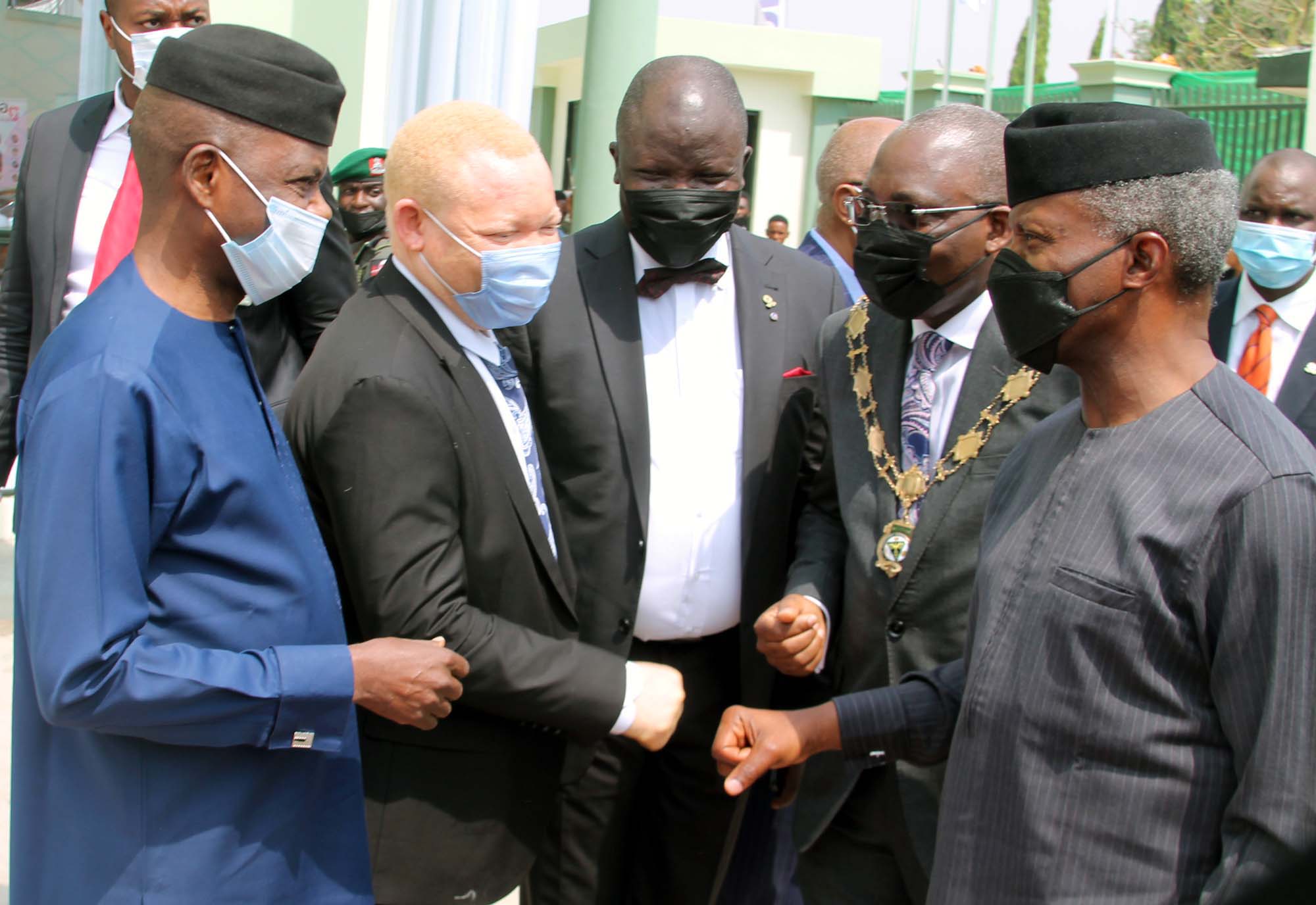Business
Focus On Pressing Issues At Nigerian Economic Summit, Osinbajo Charges

Vice President Yemi Osinbajo, has called on the Nigerian Economic Summit Group (NESG) to focus on far pressing national issues at this year’s Nigerian Economic Summit, which holds next week.
The Vice President, who made the call, Tuesday, when a delegation of the NESG met with him at the Presidential Villa, said focus on pressing national issues should be the “objective of the meeting this year”.
He noted that “sometimes we talk about a lot of important things, but there are pressing, immediate things with significance for the future”.
The NESG team briefed the Vice President on the agenda, particularly the theme of the 28th Nigerian Economic Summit (NES), ‘2023 and Beyond: Priorities for Shared Prosperity’, scheduled for the 14th and 15th of November, 2022.
Osinbajo in a statement by his media aide, Laolu Akande, said, “I am always concerned we don’t allow very many issues to obscure the more important issues that confront us today, so that we leave the Summit with a clearer view on how we can resolve the pressing issues.
“For example, how do we tackle the rising inflation and the exchange rate instability? I really think we should spend more time focusing on the primary issues of inflation and exchange rate control”.
Noting the significance of the private sector’s perspective to macroeconomic issues, the Vice President said “it is very important to always note that what you (private sector experts) think are the main concerns of today, especially about macroeconomics and how to deal with the issues.
“What the private sector thinks about how we can resolve some of these issues is important”, he emphasized.
He acknowledged the contributions of the NESG to economic development in the country, expressing strong belief in the objectives of the NESG.
“I strongly believe in the objectives of the NESG. It has contributed a lot to how the public sector thinks through policies and has provided that forum for public sector accountability.
“The NESG has also been very useful in educating the private sector about the processes of running a complex system such as the one that we have. It has been a very useful synergy between the public and the private sector,” the VP added.
Speaking, Chairman of the NESG Board, Mr Asue Ighodalo, who led the delegation, commended the Vice President’s coordination that produced great results in the ease of doing business, noting that the VP has “done a fantastic job on ease of doing business, regardless of the challenges that we are confronted with today.”
He reiterated the commitment of the group to collaborate more with the public sector and expressed optimism that despite the challenges.
“This government can still do much more before it leaves. At the NESG, we believe that the next six months are very critical”, he said.
The 28th NES will feature President Muhammadu Buhari, the VP and other leaders from the public and private sectors, sharing thoughts on visionary leadership and inclusive growth, among other topics.
The delegation of the NESG also included its CEO, Mr Laoye Jaiyeola; member, NESG Board, Mr Nnanna Ude; co-chair (Public Sector) – 28th NES Joint Planning Committee, Mr Felix Okonkwo, and co-chair (Private Sector), 28th NES Joint Planning Committee, and Mrs. Ijeoma Taylaur.
The summit is an annual event where the public and private sector stakeholders deliberate on developmental issues.
Transport
Automated Points Concession : FAAN Workers Gave 72hrs To Revise Decisions In PH

Transport
FAAN Announces Pick-Up Points for Go-Cashless Cards

Business
Fidelity Bank To Empower Women With Sustainable Entrepreneurship Skills, HAP2.0
-

 News4 days ago
News4 days agoAmend Constitution To Accommodate State Police, Tinubu Tells Senators
-

 Politics4 days ago
Politics4 days agoSenate Urges Tinubu To Sack CAC Boss
-
Business4 days ago
Crisis Response: EU-project Delivers New Vet. Clinic To Katsina Govt.
-
Business4 days ago
President Tinubu Approves Extension Ban On Raw Shea Nut Export
-

 News4 days ago
News4 days agoDisu Takes Over As New IGP …Declares Total War On Corruption, Impunity
-
Business4 days ago
Fidelity Bank To Empower Women With Sustainable Entrepreneurship Skills, HAP2.0
-
Business4 days ago
President Tinubu Extends Raw Shea Nuts Export Ban To 2027
-
Sports4 days ago
NDG: Rivers Coach Appeal To NDDC In Talent Discovery

